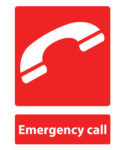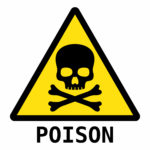Drowning is defined as death within 24 hours of suffocation by submersion in a liquid, normally freshwater or seawater. Near-drowning implies successful resuscitation from suffocation caused by submersion. Secondary drowning refers to fluid accumulation in the lungs following what appears to be a successful recovery from a near-drowning event. What to Do if Someone is […]
Understanding UK Emergency Numbers
The primary emergency contact numbers in the UK are:
- 999: The traditional UK-wide emergency number, established in 1937, connecting callers to police, fire, ambulance, and other emergency services.
- 112: The European Union emergency number, introduced in 1991, also operational in the UK and functioning identically to 999.
Both numbers are free to call and can be dialled from any phone, including mobiles without credit. When connected, an operator will ask which service you require and your location to dispatch appropriate assistance.
When to Call Emergency Services
It’s crucial to recognise situations that necessitate immediate emergency intervention. Call 999 or 112 when someone is:
- Experiencing severe chest pain or difficulty breathing
- Unconscious or unresponsive
- Bleeding profusely
- Involved in a serious road traffic collision
- Trapped in a fire or hazardous environment
- Witnessing a crime in progress
For non-emergency medical situations, consider contacting NHS 111 for advice and guidance.
How to Call Emergency Services
When calling 999 or 112:
- Stay Calm: Take a deep breath to compose yourself.
- Provide Essential Information: Clearly state the nature of the emergency, your exact location, and any landmarks to assist responders.
- Follow Instructions: Listen carefully to the operator and answer their questions accurately.
- Stay on the Line: Do not hang up until the operator advises you to do so.
For individuals unable to make voice calls, the UK offers alternative methods:
- Emergency SMS Service: Register your mobile phone to send a text message to 999. This service is particularly beneficial for those with hearing or speech impairments. Learn more about making 999 calls via text.
- 999 BSL Service: A video relay service enabling deaf individuals to communicate with emergency services using British Sign Language through an app or website. Discover the 999 BSL Service.
Roles of Emergency Responders
The UK’s emergency services encompass various agencies, each with specific responsibilities:
- Police: Maintain public order, prevent and investigate crimes, and ensure community safety.
- Fire and Rescue Services: Respond to fires, road traffic collisions, and other emergencies requiring rescue operations.
- Ambulance Services: Provide medical assistance, transport patients to healthcare facilities, and offer pre-hospital care. Understand more about calling the Emergency Medical Services.
- Coastguard: Handle maritime emergencies, including rescues at sea and along the coastline.
- Mountain Rescue: Assist individuals in distress in mountainous or remote areas.
Further Resources
Enhance your understanding of emergency services and first aid:
For comprehensive first aid training, consider enrolling in our First Aid at Work Annual Refresher (VTQ) course.






